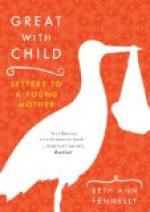The extent to which the senses can be improved or exalted, can best be understood by observing how perfect they become when we are compelled to cultivate them. Thus the blind, who are obliged to cultivate hearing, feeling, and smelling, often astonish us by the keenness of these senses. They will distinguish sounds—especially voices—which others cannot; and with so much accuracy, as to remember for several years the voice of a person in a large company, which they hear but once. They will also distinguish small pieces of money, different fabrics and qualities of cloth, &c.; and, in walking, often ascertain, by the feeling of the air, or by other sensations, when they approach a building, or any other considerable body. So the North American Indian, whose habits of life seem to require it, can hear the footsteps of an approaching enemy at distances which astonish us. So also the deaf and dumb are very keen-sighted, and generally make very accurate observations. Any reader who is sceptical in regard to the cultivation of the senses, would do well to consult the account of Julia Brace, the deaf and dumb and blind girl, as published in some of the early volumes of the “Annals of Education.”
But it is hardly necessary to resort to the blind, or to savages, or to the deaf and dumb, in order to prove man’s susceptibility in this respect. We may be reminded of the same fact by observing with what accuracy the merchant tailor can distinguish, by feeling, the quality of his goods; how quick a painter, an engraver, or a printer, will discover errors in painting or printing, which wholly escape ordinary readers or observers; and how quick the ear of a good musician will discover the existence and origin of a discordant sound in his choir.
Now I do not undertake to say or prove, that mankind would be better or happier for having their senses all cultivated in the highest possible degree; though I am not sure that this would not be the case. But so long as a large proportion of our ideas enter our minds through the medium of the five senses, it is desirable that something should be done to perfect them, instead of overlooking the whole subject. What mothers ought to do in this matter, deserves, therefore, a brief consideration.
SEC. 1. Hearing.
The suggestion, in another place, to keep away caps from the child’s head, if duly attended to, is one means of perfecting, or at least of preserving, the sense of hearing. For caps, by the heat they produce to a part which cannot safely endure an increase of temperature, greatly expose children to catarrhal affections; and many a catarrh has laid the foundation for dulness of hearing, if not of actual deafness.
The ears should be kept clean. If washed sufficiently often, and syringed once a week with warm milk and water, or with very weak soap-suds, gently warmed, the cerumen or ear wax will hardly be found accumulated in such masses as to produce deafness. And yet such accumulations, with such consequences, are by no means uncommon. It is not long since a young man with whom I am acquainted, applied to an eminent surgeon of Boston, on account of deafness in one ear, which had become quite troublesome, and as it was feared, incurable. Syringing with a large and strong syringe disengaged a large mass of cerumen, and hearing was immediately restored.




